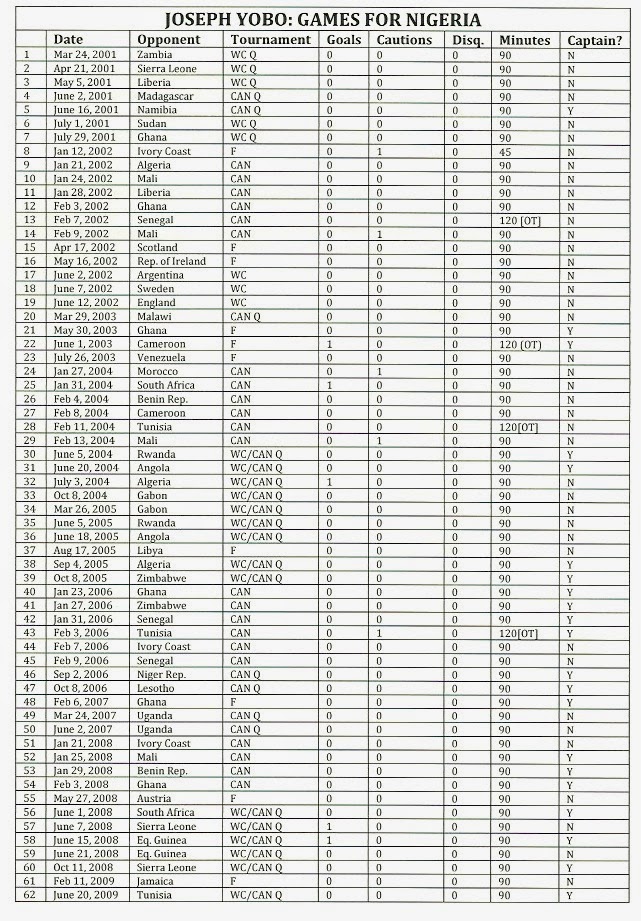Nigeria's Football and the Perpetual Power Puzzle
The ongoing battle to control the Nigerian Football Federation (NFF) represents a major fault line in Nigeria's quest for football progress. Of course, while the press clamors for the resignation of Pinnick Amaju's regime and the upstart Giwa faction gains a court ruling to take over the reins, the only thing that suffers is Nigeria's football.
Make no mistake about it, there is nothing in the composition of Giwa's faction that demonstrates that it has anything good to offer Nigeria's football. In fact, they offer worse going by the antecedents of the litany of individuals mentioned by that group. However, that is not saying that Amaju Pinnick's group has performed in an outstanding fashion. In fact, Pinnick's group has been underwhelming but it is undeniable that they have toed a more forward outlook to solving Nigeria's football problems. Their major setback is inability to generate funds to solve numerous problems and the regime's tendency to believe that all solutions are "foreign."
Nevertheless, my focus is not necessarily to compare Pinnick's group to Giwa's group. The intent here is to briefly point to a perpetual power struggle that is likely to end inevitably in a FIFA intervention. Nigeria's football sage, Adegboye Onigbinde, may have argued that there is no possibility for FIFA intervention because a government interference is not explicit. He argues that FIFA does not involve itself in internal squabbles and that the ongoing battle for power is all internal. I disagree with such analysis and, briefly, here is why:
1. FIFA has intervened in cases where the central actors are not government. For instance, FIFA acted in the Ugandan case in 2012, which involved the Ugandan Federation and the Ugandan League officials forming two competing elite leagues with same clubs and then the subsequent court cases. Though the Ugandan government eventually intervened in attempt to solve the problem, FIFA's action was directed to act in a bid to settle the dispute and not necessarily to clamp down on the Ugandan government.
2. FIFA has already arbitrated this case and ruled against the Giwa faction. Moreover, Giwa's faction additionally failed to win their case in a subsequent appeal to the Court of Arbitration in Sport (CAS). Thus, FIFA is likely to see Giwa's subsequent move to secure a win through the Nigerian court system as an extra-statutory move. It is a slap in the face of FIFA.
Considering the two points above, I argue that FIFA is more likely to intervene rather than abstain. But how exactly is FIFA likely to intervene? This is more difficult to address but here is what I think considering the case. There are several options and these may well be used in some combination.
1. FIFA may reiterate its stance in support of Amaju Pinnick group and consistent with its previous rulings on the cases brought before it and before CAS by the Giwa faction.
2. That FIFA setups a fact finding process, which may culminate in the appointment of a Normalization Committee as FIFA has done in similar cases elsewhere. This committee is then charged to conduct election that is opened to both the Pinnick and Giwa groups. This option recognizes that both the Giwa and Pinnick elections were flawed.
3. FIFA issues a suspension of Giwa and members of his faction from football activity based on the fact that they have violated one of its tenets which is taking football matters to court and this after losing out in arbitration processes recognized by FIFA. Whereas such actions may be largely rare by FIFA, it may be required to discourage incessant court suits filed by football officials in lieu of recommended arbitration processes.
Ultimately, I believe that FIFA will act on this matter sooner than later. The argument that the Nigerian court supersedes FIFA within Nigerian territory is a non sequitur in my opinion. I state this because participation in FIFA requires certain responsibilities on the part of those participants and that includes following laid down FIFA processes. To deny that is to face the prospect of staying outside of FIFA. Thus, to refuse FIFA's ruling here is also to acknowledge the willingness of decision makers in Nigeria's football to make the tough decision to stay outside of FIFA.


Comments
Post a Comment